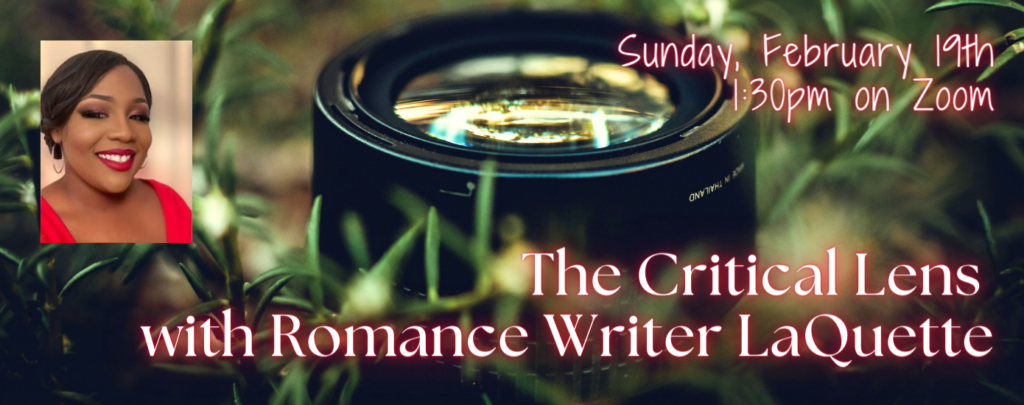Your cart is currently empty!

Tugging at the Heartstrings with Jenny Holiday

Jenny Holiday visited the WCYR Zoom Room on Sunday, January 22 to talk about effective romance and writing it – both for writers of the genre and those who integrate it into their fiction.
As a former Toronto Romance Writers’ (TRW) member, I can honestly say that I’ve heard several romance writes speak on their subject, but none with as much openness and honesty as Jenny (except for maybe Molly O’Keefe, who just happens to be one of Jenny’s inspirational authors).
The biggest difference Jenny shared was that she doesn’t follow a step-by-step plan (such as those described in Save the Cat! Writes a Novel, Romancing the Beat, etc.), just one basic idea: what do the characters learn? That one line in and of itself prompts her to think about conflict, motivation, and desire.
She also provided great little nuggets of wisdom regarding point of view (POV) character arcs:
- Force them outside of their comfort zone,
- Change their circumstance, and
- Show vulnerability.
Of the many insights she gave for helping show a character’s vulnerability, she mentioned not relying on accidents and misunderstanding but to use them, maybe once, as a way in. Then, each consecutive vulnerable moment should happen on purpose.
LESS IS MORE! She didn’t scream it like this, but Jenny did underscore its dramatic importance. Don’t pile on the big heartfelt moments all at once. Instead, parcel them out in smaller moments that don’t necessarily revolve around the main conflict of the immediate scene. By having something happen on the sidelines that is observed without another person noticing, our characters have rich opportunities to learn and discover more about each other.
Lastly, Jenny rounded out her talk with take-away pointers for non-romance writers who might want to include it as a sub-layer in their stories. She encourages us to identify a purpose for having a romantic element and not to include one if you don’t need it. It’s important to avoid clichéd elements and using them in a superficial way – write real. Consider the “shippers” when you write. Shippers? you might ask.
This was a new (but important) term for me too. Potentially a derivative of the term “relationshippers,” this refers to readers who seek romantic parings that might not actually be there… or, at least, not right away. You can hook a romance reader into journeying along with your characters by making them charismatic and giving them unresolved tension. Shippers will pine for a romance when there isn’t any and try to will it into being. By keeping them on the hook, especially within a series, they will gobble up every little nuanced nugget you offer them.
So, whether you’re planning on writing romance, dabble in it, or are looking to add a realistic layer to your preferred genre, Jenny gave us the courage to play in the writer’s sandbox with only one rule in mind: if it’s romance, it’s gotta have a happy ending… at least for now.
Upcoming Events

LaQuette will help us to address diversity in our writing from a critical lens, regardless of our chosen genres. Writing outside of your personal, generational, or cultural experience can be a treacherous road to travel for today’s author. Even with the best intentions, it’s easy to create problematic or harmful content when you’re unaware of what you don’t know. Learn how to use literary theory and criticism to view your work through an alternative lens. By using literary frameworks, you can gain insight into alternative perspectives that can help you identify and eliminate problematic and harmful content before you publish. Sign up here.